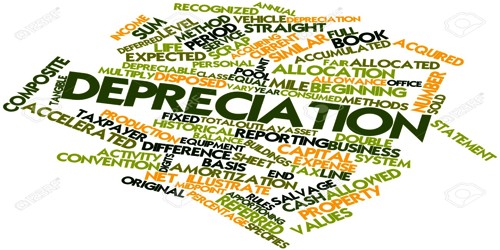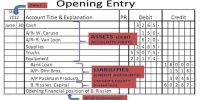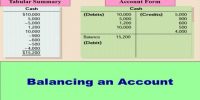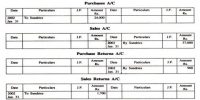Terms used for Depreciation:
Depreciation is a decrease in the price of an asset with the course of time, due in particular to wear and tear. All assets whose benefit is derived for a long period of time, generally more than one year period are called as Fixed Assets. These assets reduce in value year after year due to wear and tear or lapse of time. This reduction in value of Fixed Assets is called Depreciation.
Amortization: This refers to loss in the value of intangible assets such as goodwill, patents and beginning expenses. The means distinction between amortization and depreciation is that amortization charges off the cost of an intangible asset, while depreciation does so for a tangible asset. But both depreciation and amortization are non-cash expenses – that is, the company does not suffer a cash reduction when these expenses are recorded.
Depletion: Decrease in the value of mineral wealth such as coal, oil, iron ore, etc. is termed as depletion. The more we extract mineral wealth, the more they are depleted. Depletion is an accounting concept which is used mostly in mining, timber, petroleum or other similar industries. Being similar to depreciation, depletion allows accounting for the reduction of the resource’s reserve.
Obsolescence: When an asset becomes useless due to new inventions, improved techniques and technological advances, it is termed as obsolescence. Obsolescence occurs normally due to the availability of alternatives that perform better or are cheaper or both, or due to changes in user preferences, requirements, or styles. It is distinct from depreciation due to physical deterioration or normal wear and tear.















